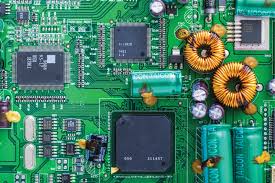In an effort to reduce its reliance on Asia for the small computer chips that run everything from vehicles to washing machines, the European Union was getting closer on Tuesday to getting permission for a proposal to increase semiconductor output.
The 43 billion euro ($47 billion) Chips Act, which combines public and private funds and permits state aid to launch significant expenditures for chipmaking facilities, was the result of an informal agreement between the European Parliament and the bloc’s 27 member states.
Ebba Busch, the industry minister for Sweden, which is now holding the rotating EU presidency, stated in a statement that “The Chips Act puts Europe in the front line of cutting-edge technologies which are essential for our green and digital transitions.”
The European Union is struggling to stay up with the United States, which passed its own $52 billion Chips Act to support the semiconductor industry in that country.
The EU Chips Act will coordinate national and EU investment while also tying together research, design, and testing. It seeks to support the growth of the semiconductor sector so that by 2030, the bloc’s market share of worldwide chip production would increase to 20%.
Both the U.S. and the EU aim to lessen their reliance on Asia, which produces the majority of the world’s semiconductors. This dependence was made vulnerable by the COVID-19 epidemic, which caused supply chain disruptions that resulted in protracted shortages of automobiles, smartphones, and medical equipment.
Chips are integrated circuits that are placed in a semiconductor, a substance that can control the flow of electricity, most notably silicon. It’s common to use the phrases “chip” and “semiconductor” interchangeably.


















